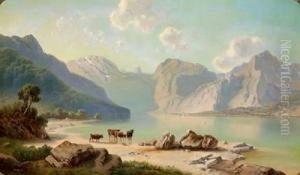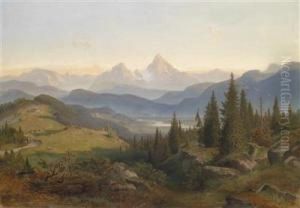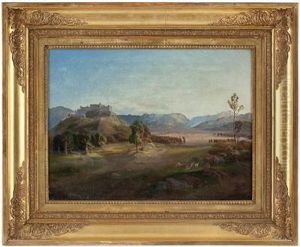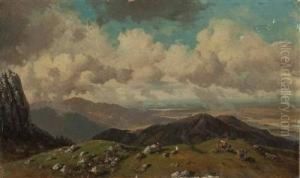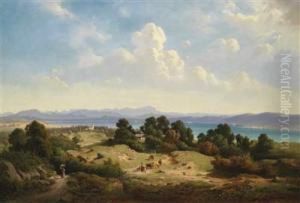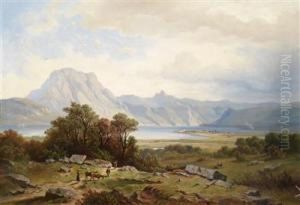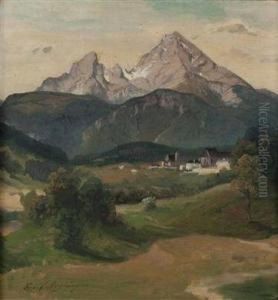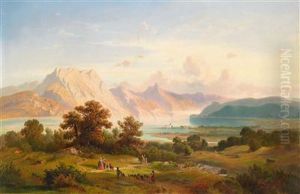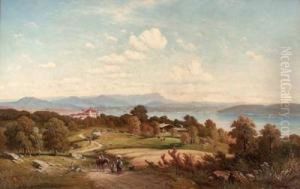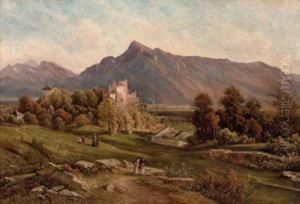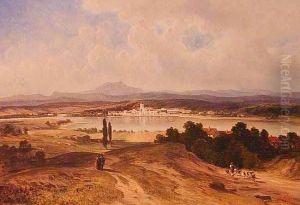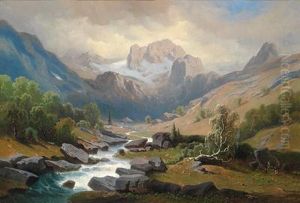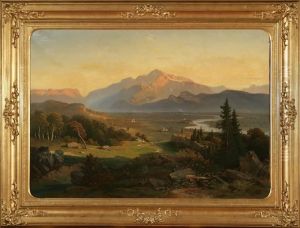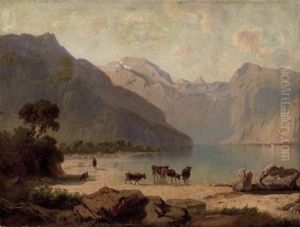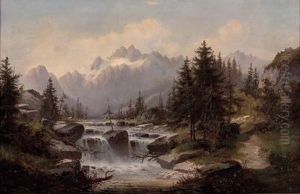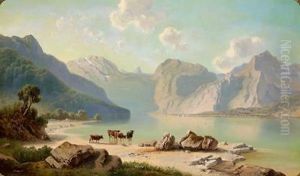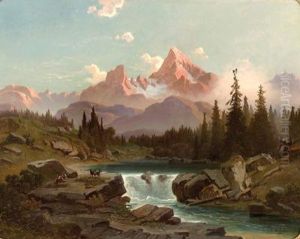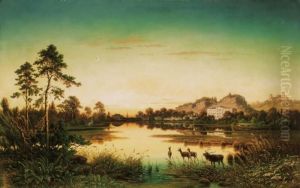Joseph Mayburger Paintings
Joseph Mayburger was an Austrian painter and lithographer, known for his contributions to Austrian art in the early 19th century. Born in 1804 in Salzburg, Mayburger was part of a period in European art where Romanticism was the prevailing movement, and his works often reflect the characteristics of this style, such as an emphasis on emotion and individualism, as well as a glorification of the past and nature.
Mayburger's education and early career were influenced by the artistic environment of his time. He enrolled at the Academy of Fine Arts Vienna, where he studied under the guidance of distinguished artists and educators. His initial works were primarily lithographs, a popular medium during this period, which helped disseminate artworks to a wider audience.
As Mayburger progressed in his career, he began to focus more on painting, particularly frescoes, which were a significant aspect of religious and secular building decor during the 19th century. His work included religious themes and historical subjects, often imbued with a sense of nationalism, which resonated with the burgeoning sense of Austrian identity of the era.
Despite his promising career, Joseph Mayburger's life was cut short when he died in 1848, at the age of 44. The year of his death coincided with the revolutionary waves that swept through Europe, and the political turmoil of the period also marked an era of transformation in the art world. Mayburger's legacy, although not as well-known as some of his contemporaries, is preserved in the works he left behind, which contribute to the rich tapestry of Austrian Romantic art. His contributions continue to be recognized by art historians who study this period and its influence on the course of European art history.
